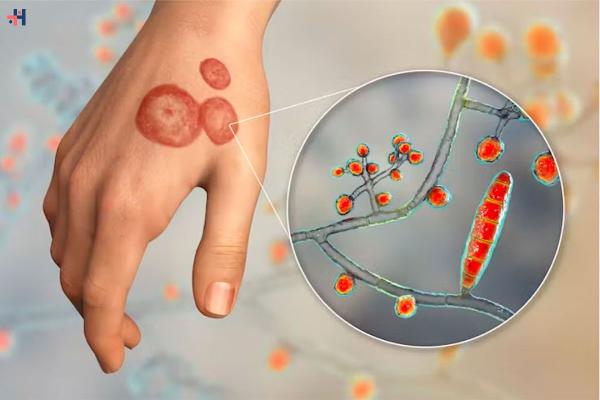 Core Web Vitals Boost – Speed Up Your Site & Your SEO!
Core Web Vitals Boost – Speed Up Your Site & Your SEO!
Toxoplasma Parasite is said to Inject Active Substances into the Brain
Written by HealthCare360 » Updated on: June 17th, 2025

Toxoplasma Parasite is said to Inject Active Substances into the Brain
Toxoplasma Parasite Inject Active Substances into the Brain | Healthcare 360 Magazine
(Source-npr.org)
The toxoplasmosis pathogen, Toxoplasma parasite, is well-known for its ability to penetrate the brains of mammals and birds. An international research team has recently leveraged this ability to cross the blood-brain barrier in an innovative proof of concept. They modified T. gondii to produce a protein in the brain that could potentially treat certain diseases and introduced it into nerve cells. However, the safety and effectiveness of this novel approach are yet to be fully established, as detailed by the team led by Shahar Bracha from Tel Aviv University in the journal Nature Microbiology.
Challenges of Protein Introduction into the Brain
Introducing proteins into the brain has traditionally been extremely challenging for several reasons. Proteins are usually too large to cross the blood-brain barrier, are considered unstable, and can trigger immune reactions. Finding a way to deliver proteins specifically to the brain could revolutionize therapies and enhance fundamental research. This is where the toxoplasmosis pathogen T. gondii comes into play.
Widespread Infection and Potential
T. gondii is a global pathogen, estimated to infect up to 50 percent of the population in Germany, often without causing illness. Infections can occur through contact with cats or contaminated food, as the parasite’s eggs mature and spread spores that contaminate water, soil, and crops. Once ingested, T. gondii can cross the blood-brain barrier and reside in brain nerve cells for life, typically causing illness only in cases of immune deficiency, such as encephalitis.
Leveraging the Toxoplasma Parasite’s Capabilities
The single-celled T. gondii uses specialized cell components called organelles—micronemes, rhoptries, and dense granules—to produce proteins. The study, involving researchers from the USA, UK, Italy, and Switzerland, demonstrated that the latter two organelles could be used to produce proteins and transport them into host nerve cells.
The team focused on a protein called MeCP2, believed to alleviate symptoms of Rett syndrome, a rare hereditary brain development disorder. After extensive laboratory tests, they injected genetically modified Toxoplasma parasites capable of producing MeCP2 into the abdominal cavity of mice. The results showed that most parasites settled in the brain without causing noticeable inflammatory reactions.
Potential Applications and Risks
The study indicates that T. gondii can inject proteins into brain cells or produce them over extended periods, thanks to its specialized organelles. This principle is not entirely new, as harmless viruses are also used as “transport ferries” to introduce vaccines into body cells.
However, this method carries significant risks. The researchers emphasize the importance of weakening the parasite, drawing parallels with viral transport systems. Although natural infections are typically symptom-free in immunocompetent individuals, Toxoplasma can have adverse effects in various situations. The primary focus now is on optimizing the efficiency and safety of this approach.
Future Prospects and Challenges
Martin Blume from the Robert Koch Institute (RKI) notes that using Toxoplasma organisms therapeutically has been discussed for years, such as for delivering substances into cancer cells. The study demonstrated the production of special proteins in the brains of mice, but it remains unclear at which developmental stage the pathogen produced the protein. The MeCP2 concentrations also remain undetermined, highlighting the need for further research.
In general, there are significant doubts about using T. gondii in humans due to the limited understanding of Toxoplasma infections in the human brain. Despite these challenges, the potential for groundbreaking treatments and research advancements makes this an area of keen scientific interest.
Find practical solutions to common challenges through our insightful articles on Healthcare 360 Magazine
Note: IndiBlogHub features both user-submitted and editorial content. We do not verify third-party contributions. Read our Disclaimer and Privacy Policyfor details.
Copyright © 2019-2025 IndiBlogHub.com. All rights reserved. Hosted on DigitalOcean for fast, reliable performance.

















